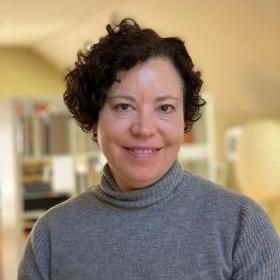
Countertransference: What It Is and How to Use It - Elizabeth Weinberg, MD (Recorded)
This is a sixty minute presentation that will include opportunities for questions and discussion in the large group of conference attendees. This presentation addresses the scholarly literature and clinical experience relating to clinicians’ experience of countertransference, particularly in working with patients with complex treatment histories. Many clinicians struggle to understand and manage strong feelings generated in therapeutic work. Because of the central professional importance of professionalism to physicians, psychiatrists may feel ashamed or anxious, and may avoid situations that bring up countertransference reactions. A developed understanding of the countertransference can increase the effectiveness of therapy and lead to reduced distress and reduced burnout in psychiatrists, particularly helping work with patients who have struggled to respond to treatment in the past.
References:
- Gabbard, G. O., & Wilkinson, S. M. (1994). Management of countertransference with borderline patients. American Psychiatric Association.
- Gainer D, Cowan AE. The Very Important Patient. Innov Clin Neurosci. 2019 Jul 1;16(7-08):25-28. PMID: 31832261; PMCID: PMC6850500.
- Hayes JA, Gelso CJ, Goldberg S, Kivlighan DM. Countertransference management and effective psychotherapy: Meta-analytic findings. Psychotherapy (Chic). 2018 Dec;55(4):496-507. doi: 10.1037/pst0000189. PMID: 30335461.
- Heimann, P. (1950) On Counter-Transference. International Journal of Psychoanalysis 31:81-84
Target Audience
______ Introductory __x____ Intermediate ______ Advanced
Learning Objectives
- List at least three benefits of conscious engagement of countertransference in clinical work
- Describe at least two components of historical changes in the countertransference concept since its initial introduction by Sigmund Freud.
- Assess at least three examples of evidence of countertransference distortion in clinical work
Elizabeth Weinberg, MD, is a psychiatrist and psychoanalyst currently working at Ellenhorn, a psychosocial rehabilitation program in Arlington Massachusetts as well as conducting psychotherapy and psychoanalysis in private practice.
Dr. Weinberg attended medical school at Baylor College of Medicine in Houston, Texas and then attended the residency program in psychiatry at McLean Hospital, in Belmont, Massachusetts. After residency, she moved back to Texas to join the faculty at Baylor and worked in the Ben Taub system, where she designed and led an intensive outpatient program for personality disordered patients. While in Houston, she completed her psychoanalytic training at the Houston-Galveston Psychoanalytic Institute. In 2010, she moved to Western Massachusetts, where she worked on staff as a therapist and psychiatrist and faculty member for Austen Riggs for 11 years. She currently is on the faculty of the Boston Psychoanalytic Institute where she teaches in the psychotherapy program, as well as the clinical faculty of Harvard Medical school, where she supervises psychotherapy. In addition to her job at Ellenhorn, has a private practice in psychoanalysis and psychotherapy. Her interests include personality disorders and the use of psychoanalytic psychotherapy in treatment of severe mental illness.
Austen Riggs Center Inc. adheres to the ACCME’s Standards for Integrity and Independence in Accredited Continuing Medical Education. All those at Austen Riggs Center involved in the planning of this activity, including the presenter(s) listed above, report they have no relevant financial relationships with an ineligible company*.
The views and opinions expressed in this presentation are those of the presenter(s) and do not necessarily represent the official policy or position of the Austen Riggs Center.
* An ineligible company is any entity whose primary business is producing, marketing, selling, re-selling, or distributing healthcare products used by or on patients.
Available Credit
- 1.00 AMA PRA Category 1 Credit™
ACCME - As a Jointly Accredited Organization, The Austen Riggs Center, Inc. designates this learning activity for a maximum of 1.00 AMA PRA Category 1 Credit™. Physicians should claim only the credit commensurate with the extent of their participation in the activity.
- 1.00 APA
As a Jointly Accredited Organization, The Austen Riggs Center, Inc. designates this learning activity for 1.00 continuing education credit(s) (CE) for psychology. Continuing Education (CE) credits for psychologists are provided through the co-sponsorship of the American Psychological Association (APA) Office of Continuing Education in Psychology (CEP). The APA CEP Office maintains responsibility for the content of the programs.
Austen Riggs Center, Inc. is recognized by the New York State Education Department’s State Board for Psychology as an approved provider of continuing education for licensed psychologists #PSY-0115.
- 1.00 ASWB-ACE
As a Jointly Accredited Organization, The Austen Riggs Center, Inc is approved to offer social work continuing education by the Association of Social Work Boards (ASWB) Approved Continuing Education (ACE) program. Organization, not individual courses, are approved under this program. State and provincial regulatory boards have the final authority to determine whether an individual course may be accepted for continuing education credit. Austen Riggs Center maintains responsibility for this. Social workers completing this Enduring will receive 1.00 continuing education credit(s).
Austen Riggs Center, Inc is recognized by the New York State Education Department's State Board for Social Work as an approved provider of continuing education for licensed social workers #SW-0843.
- 1.00 Contact Hours/ ParticipationA certificate of attendance for all Learners.

 Facebook
Facebook X
X LinkedIn
LinkedIn Forward
Forward